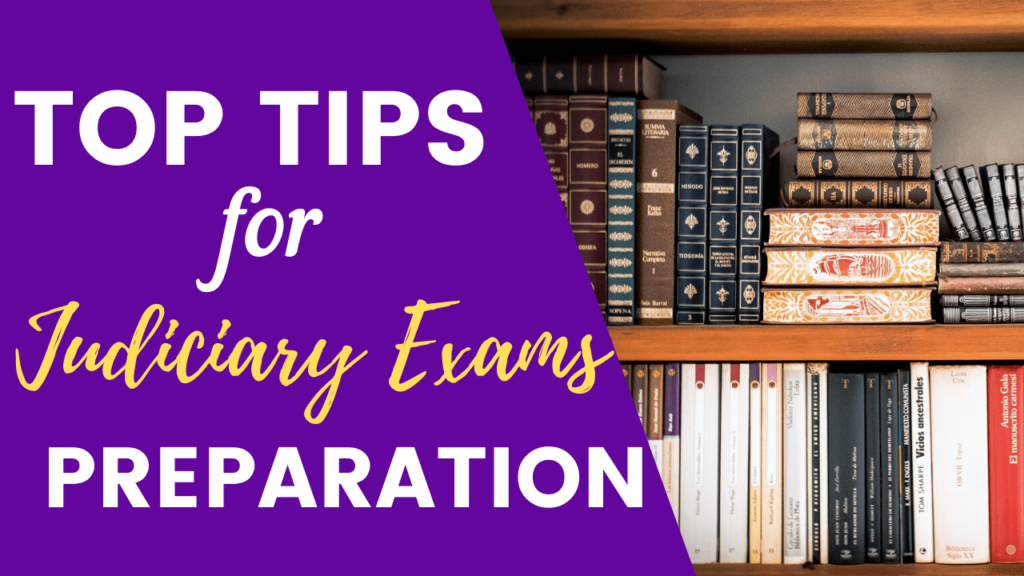
A career in judicial service is one of the most respected jobs of this country and every year thousands of people try to enrol themselves into this career option to make their future secure. To make a career in the judicial system the applicants are required to qualify for the regular entrance examination conducted every year by different authorities of India. In case if you are a law graduate then you may sit for the lower judicial exams conducted by the public service commission for each state differently. However, if you are planning to sit for a higher position of the judicial service then as an applicant you are required to have a minimum of seven-year experience or practice being a member of the Bar Council of India (BCI). There is a high possibility of exam patterns in every other state, mostly due to different laws being enforced. The exams however related to this very field provide a secure as well as comfortable tenure. Apart from this, the selected candidates are also allowed to serve the country. If the number is estimated then around every year 50,000 to 60,000 candidates appear for the judicial service examination but only a few out of the huge number is selected.
Also Read: Judicial Coaching in Delhi and 5 Year LLB Preparation
These selected candidates have something called the bonus in them that makes them kind of perfect for managing a role in the Indian judicial system. Coming up with a plan is the initial thing a candidate is required to do. A candidate has two options available with them to carry out their study. The first one is to seek professional guidance for teaching and the other one is self-education. Both methods work as per the dedication shown by the candidate. In the case of the preliminary examination, the candidate should mostly focus on the bare act study thoroughly whereas in the case of the mains examination the clarity of each concept about various laws is kind of required. Now, as far as the matter concerned with the interview apart from the thorough knowledge about the current affairs as well the basic general knowledge must be taken care of. The focus should also be given on various important concepts of the laws prescribed under IPC, CPC, CRPC as well as Evidence Act. Some of the popular law entrance examinations are as follow:
- CLAT
- AIBE
- TS LAWCET
- ULSAT
- MH CET Law
- BHU LLB
What is the Judicial Service Examination?
This is the initial question that has been searched for or asked by a lot of candidates. Well, the answer is a kind of simple Judicial Service Examination is even known as PCS (J)- Provisional Civil ServiceJudicial Examination which is often referred to as the entry-level exams for the law graduate to become one of the members of the subordinate judiciary. Here the state government which falls under the supervision of the respective high courts select or I can say appoint members for the lower judiciary based on the candidate’s performance in competitive examination.
The eligibility criteria of this Judicial Service examination is been listed below:
Lower Judiciary Service:
The eligibility criteria that is kind of required to appear in this level of examination is a degree in LL.B and with that, the candidate must also have already enrolled or qualified to be termed as an Advocate under the Advocates Act 1961. Over here no experience is required with that the final year candidates are also eligible to appear. However, the age limit varies according to the state which mainly falls between 21 to 35 years.
Also Read: How to Get Admission in BA LLB 3 Years and 5 Years
Higher Judicial Service:
For this, the candidate must be a graduate in the field of law and with that must also have an overall experience of the minimum number of years which is seven. This experience period has been termed as litigating practice.
Examination pattern:
Now moving forward let us see the structure in which these judicial examinations are conducted to be more clear before appearing for the same. This examination is done in three successive stages named preliminary examination, mains and viva-voce or Interview.
- The preliminary examination is the screening done before the mains exam. This mostly comprises objective type questions. The marks however scored in this examination are not counted for the final selection. The percentage required as per the state demand differs from each other most of the time. The minimum qualifying marks in the preliminary examination is about 60 per cent for the general category and 55 for reserved categories. Kindly make note of it.
- The mains examination is the second level which is the most important one. It is a subjective type of paper. This examination comprises three to four papers in total. The marks secured by the candidates are counted for the final selection. After this, the candidate equal to the three times the number of vacancies are called for vice voce.
- The final stage is the viva-voce which is even termed as a personnel interview. In this round, the candidate is assessed on general interest, personality and overall intelligence among considering the other factors too.
Conclusion:
I hope the information been shared was helpful to all my readers
